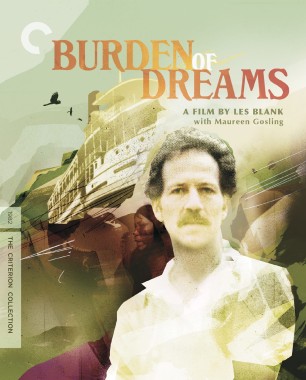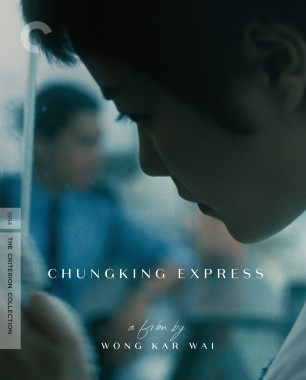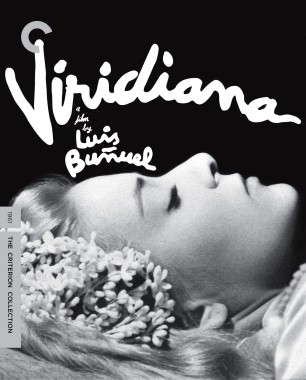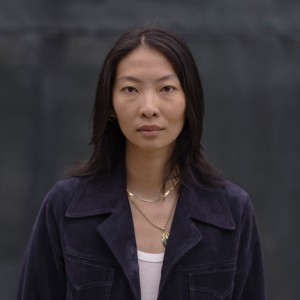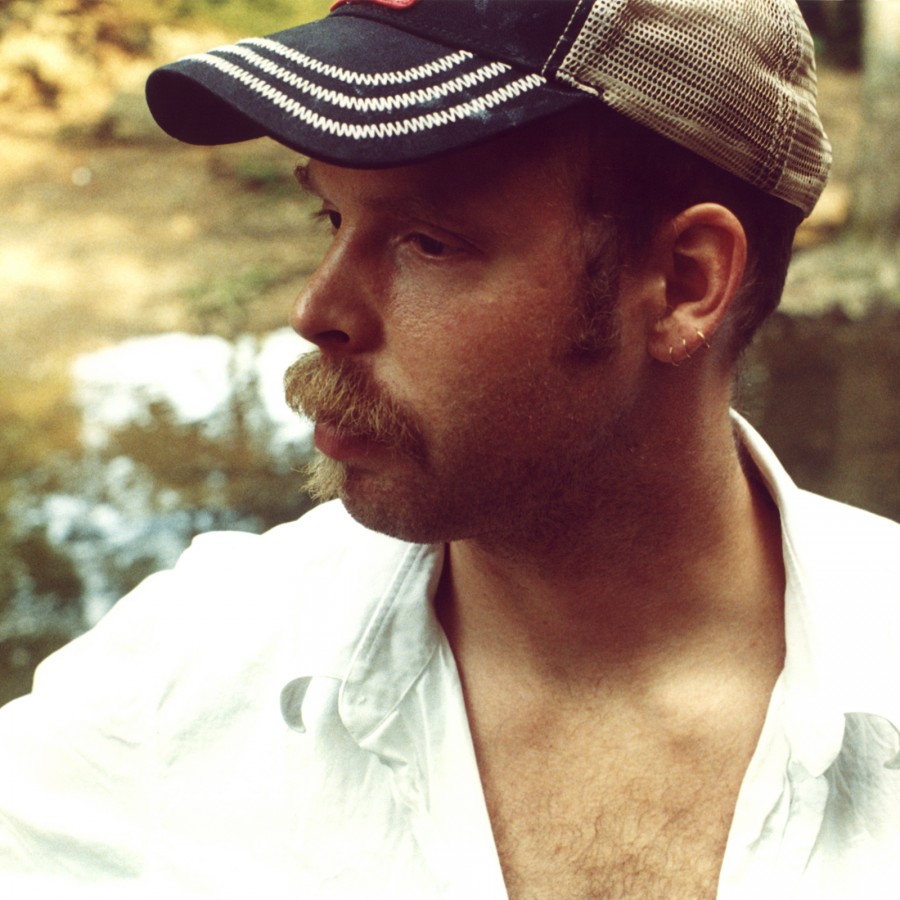
Will Oldham’s Top10
Singer-songwriter and occasional film actor Will Oldham has released eighteen albums, appeared in such films as Matewan (1987), Junebug (2005), Old Joy (2006), and Wendy and Lucy (2008), and teamed with David Byrne to compose the score for This Must Be the Place (2011), directed by Paolo Sorrentino. His album, Singer’s Grave a Sea of Tongues, released under the name, Bonnie “Prince” Billy, came out in the fall of 2014. Of his Top 10 (or fifteen, as it turns out), Oldham says, “The following are personal recollections and thoughts, because that’s all I have in regards to these things.”
Photo by Steve Gullick
-
1
John Cassavetes
Love Streams
I had heard about Cassavetes, and when I started to see his movies I realized that I knew his face from childhood favorites Rosemary’s Baby and The Dirty Dozen. I loved The Dirty Dozen because of The Team. I still have an eight-by-ten publicity still from that movie. Which Cassavetes movie did I see first? I can’t remember. I know we watched Minnie and Moskowitz many times before a tour around the year 2000 and quoted it often, and I still offer Minnie’s toast to Zelmo in most instances when I am in the position to offer a toast: “To you and your happiness.” I know at some point I saw I’m Almost Not Crazy . . . before I saw Love Streams itself. Love Streams is, to me, Cassavetes’s version of Peckinpah’s Bring Me the Head of Alfredo Garcia or Russ Meyer’s Supervixens: a summing-up and distillation of ideas, theories, characters, plot devices; making a statement by improving upon many earlier acts and creating something that absolutely could not have been made without specific lives behind it, celebrating those lives and the shared history of creator and audience. I’ve never seen Love Streams projected; first I owned a VHS copy and later a copy of the European DVD whose release was sponsored by Agnès B. Love Streams also reminds me of my favorite movie, The Misfits, in the way that life on-screen and off- is a crucial collaborator in the ultimate full effect of the movie.
-
2
Robert Bresson
Au hasard Balthazar
I’ll pair this with Mouchette, because they are beautiful, and if I remember right they were released only a year apart, an anomaly for filmmaker Bresson whose films often had many years between their respective release dates. I tried to go to college; in fact, I did go but did not come very close to completing a degree. The highlight of my attempt at formal higher learning was a seminar led by Michael Silverman on the movies of Robert Bresson. At the first meeting of the seminar, Silverman told us that he was still intrigued, confused, and puzzled by Bresson’s movies, even years into the experiences of witnessing them. So, he said, we would take this opportunity again to explore together their density and power. Balthazar and Mouchette slayed me, maybe Balthazar most of all because I identified more with the ass that was Balthazar than the angel that was Mouchette. Both movies are pitiless and intensely compassionate. They say, “This is how bad it is. Let us love until the end.”
-
3
Terrence Malick
Badlands
It would just be dumb not to include this. I have been once accused of being irreverent above all, and I am in danger of proving that here when I say that I find most Malick 2.0 movies to be ridiculous. I do like To the Wonder because it’s pulpy. When I heard that Malick was making The Thin Red Line, I checked James Jones’s book out of the library and sat in my attic sublet poring over it in anticipation of what was to come, and when it came . . . gee whiz but what an overblown lint ball of homoerotic bluster and worthlessness. And: there’s nothing wrong with Badlands. Beautiful, great music, magical pace, great, great acting. An ultimate movie, so good that it’s understandable how the momentum from Badlands alone can propel boatloads of people to believe that The New World has content. Springsteen appropriated Badlands, using its power to artificially light his Nebraska. Tarantino and Tony Scott used it to make the best screwball romantic comedy of modern times, True Romance. Badlands is as close to a perfect movie as I can think of (though I don’t hold perfection as the most desirable of qualities in anything), one that holds something to draw in almost any audience. Even the brutality that might otherwise repel is balanced enough with gentleness and charisma that I wouldn’t squirm watching the movie with a grandparent. Well: children probably shouldn’t see it. Maybe probably.
-
4
Les Blank
Burden of Dreams
Along with Hearts of Darkness, Burden of Dreams is the best primer for how far we have gone to make art. And it is also a tremendous representation of the spirit of cinematic warriors Werner Herzog and Les Blank.
-
5
Wong Kar Wai
Chungking Express
When this movie came out, I went to see it again and again. It was probably the last movie that I saw in the theater more than once during its initial release. I knew nothing about it going in, and coming out mostly what I knew was how happy it made me feel.
-
6
Bertrand Tavernier
Coup de torchon
I used to go to see movies with my dad. He took me to see ’Round Midnight. Afterward, we bought the soundtrack and listened to it a lot; it was one of the few records I felt okay about putting on when he was in the house. It fascinated me that the music on the record was also the music we saw performed in the movie. This helped me to understand one of the things that I value most in movies: that the action captured by the camera is special and unique and crucial to the value of the movie. Which is to say that the writing is crucial, of course, the preproduction, scoring, and editing are crucial, of course . . . but my main thing is what the camera captured at the moment of its happening. I love to watch a performance that was not created by editing or cinematography or even writing, but rather a performance that is in and of itself, in the moment that it was captured, something of the highest value (because of the collaborative efforts of the major forces involved in making it happen in the first place). And so there are certain directors, “actor’s directors,” who give me more pleasure than most others. No actor is great by himself or herself. Tavernier was able, again and again, to present his players in measured, idiosyncratic, and complete ways. Coup de torchon was the first time I noticed this, and it remains a favorite. Also because Isabelle Huppert is so good and beautiful and Philippe Noiret is a hero’s hero. And because it took this resetting of Jim Thompson’s book (and James Foley’s After Dark, My Sweet) for me to understand what Thompson’s work has to offer.
-
7
Bob Rafelson
Five Easy Pieces
This is a journey of a film, which ends where we couldn’t have imagined it would. A lesson in complexity, pain, fun, and beauty. Karen Black comes off as a worse actress than she is, and Jack Nicholson comes off as a better actor than he is. I think I saw this on VHS in the mid 1980s and then again at the Cinema Village in New York City in 1989. Throughout both viewings, but more so during the second time, I felt: grateful, grateful. This movie keeps on giving. A month or two ago I remembered the scene between Nicholson’s character and the mute father. I’m grateful for that.
-
8
Perry Henzell
The Harder They Come
Necessity is the mother of invention, and music is one of necessity’s prime agents. Music makes shit happen. Music made this movie happen, and it made Apple become so fucking powerful, and it made my life happen. Johnny, you’re too bad. Whoa whoa whoa.
-
9
Hal Ashby
Harold and Maude
This was the movie, when I was a kid. This and Bugsy Malone. I know all of the dialogue in these two movies from repeated viewings at the movie theater. The Vogue and the Alpha 3 theaters in Louisville. And Ruth Gordon gave me a gateway to Hollywood screenwriting history, and Cat Stevens a gateway to transformation through music. Harold took life’s lemons and made a black psychedelic monolithic lemonade. I learned to do that too. Comedy in death, comedy in failure, comedy in being mystified by societal expectations. I was very fond of MGM musicals during my childhood, and Harold and Maude felt like the closest thing to a modern-day evolution of one of those.
-
10
Yasujiro Ozu
Floating Weeds
Criterion has so much Ozu. Ten to fifteen years ago, I hunted through Japanese markets in L.A. and San Francisco for DVDs of otherwise unavailable Ozu. Because Ozu movies settle my mind. At one point in the late 1980s I was in Los Angeles for an extended period of time. I got in the habit of renting movies from Tower Video on Sunset. The two gold mines I remember best were the Humphrey Bogart Santana productions and the Wim Wenders movies, including Tokyo-ga. I watched Tokyo-ga through a filter of loving Wenders; otherwise, its content was pretty mystifying. A year or two later someone showed me Tokyo Story, and I wished Ozu was my mother. So generous and gentle. Patiently ignoring the 180-degree line (which bugs the fuck out of me in production). Of course, I don’t know Yasujiro Ozu; still, I love the man who gave these movies to us. And what lessons! The pairing of I Was Born, But . . . and Good Morning. He didn’t know he was doing it, because at the time he made Good Morning, I imagine that I Was Born, But . . . was ancient history. Now the two movies are equally present, and they stand alone and together. I choose the Floating Weeds movies, as among the genre of movies about us performing artists those movies reign.
-
11
Ahmed El Maanouni
Trances
Thank you, Scorsese and Criterion, for this world cinema collection. On the headstock of my guitar is the name of the band Nass El Ghiwane. I have heard about Trances for years, and finally now I have been able to see it . . . and snuck into the experience was The Housekeeper, which helped me grasp the manipulations of individuals in my tangible life, creeping me the fuck out.
-
12
Mike Leigh
Naked
Another moviegoing experience with my dad. Being with my dad and watching Naked made me feel utterly paranoid and worthless, frightened to the bone. At the same time, I knew that the movie was self-contained and rewatchable, that it could operate as a vaccine if I thought about it enough, and that that vaccine could help to purge some of the demons then attempting to make a permanent host of my self.
-
13
Andrei Tarkovsky
Solaris
Why not check out a double-cassette VHS of a Russian sci-fi movie from the library in Bloomington, Indiana, in the summer of 1992? Had never heard of it, nor of Tarkovsky. I was checking out a movie every day, based on what narrow selection the library had on her shelves. I was not prepared for how bent my mind became through the experience of watching this movie. That summer, in addition to watching a movie every evening, I was working on the construction of songs with regularity for the first time in my life. Solaris restructured my consciousness for a moment and helped lead me to believe that the past = the present = the future. I’ve never seen the American remake, and, even though Soderbergh is so good, I think I never will.
-
14
Luis Buñuel
Viridiana
There are three movies the witnessings of which have been the most traumatic in my moviegoing times. Viridiana was one, seen in a London cinema, maybe up between Hampstead and Highgate Tubes, in 1990 or so. Another was Straw Dogs (also available as a Criterion release). The third was The Elephant Man, one of the few movies to which I remember my mother taking me. A commonality in all three (the commonality from which I recoiled) is the cruelty of the mob, which remains one of my biggest fears. I put these two movies in this list because I can’t help but value what they did to me, what they allowed me to comprehend about my relationship to the crowd.
-
15
Nicolas Roeg
Walkabout
Another movie my dad took me to see. Why? I don’t remember him asking me if I wanted to go to the movies, necessarily, nor if he explained what we were going to see, and I’m sure I don’t remember him talking to me after the fact about what we had seen. I went because it was my dad + the movies. How did he choose? ’Round Midnight, Pumping Iron . . . Walkabout. I remember seeing Walkabout (I was very young, a preteen), and for a long time I remembered much about it. When I saw it as an adult I saw so much that I had not remembered but must still have been there inside of me. Scary. And great, I guess? Walkabout helped begin an awareness of significant otherliness, and maybe helped reinforce the idea that otherliness is not really sanctioned.



